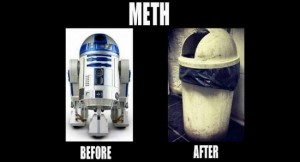 Drug use in the defense industrial base is a problem.
Drug use in the defense industrial base is a problem.
Despite initial pre-employment drug screening, limited post-employment drug tests do little to deter post-employment use within the defense industrial base. As defense manufacturers strain to get by on fewer employees, increased overtime or aggressive performance goals may act as an inducement for workers to swap out their Red Bull or 5-Hour Energy for something a little stronger. And that habit, at some point, negatively impacts quality, worker safety, morale…you name it.
The extent of the problem is not publicly discussed. But, after chatting about this with peers from across the shipbuilding industry, I would wager that the rate of drug use/drug dependency within the shipbuilding workforce (a bellwether for other defense industries) is higher than the national average. Part of this is a cultural matter–substance use/abuse was long seen as an integral part of the shipbuilding image. I mean, it wasn’t so long ago that some shipyards in the Gulf held in-house beer hours! But the other influence is economic–as the budget pressures continue to increase, the pressure on labor will increase as well. The pressure and enabling infrastructure combine to make drug use–if not abuse–more likely.
Companies are in a bind, too, and are none-too-eager to detect the occasional “recreational” user. In a tough labor market, companies hate to let skilled laborers go. If management has spent a lot of money and time “training up” a person to perform, then managers will be loathe to lose ’em–unless their work starts to suffer. It’s easy to turn a blind eye to a high-performer who comes into work smelling like a California Pot Dispensary. Shipbuilders (and techies) everywhere all know the story of the “great engineer” who blazes up in the parking lot before, during and after work.
It is also easy, as an HR manager, to pick the “lowest-false positive” testing solution available in the marketplace to limit attrition (and, of course, to limit Union and other legal entanglements).
Some employers and lower-rank supervisors may even view some drug use as a short-term performance-enhancer, making for a more contented, more productive employee. Somebody new to meth is probably going to do well at repetitive tasks–for a while. In time, the bump gives out and the worker becomes less focused, less thorough and more of a danger to his or her fellow employees.
Quality suffers. Rework becomes a problem. Equipment disappears.
So what can the defense sector–and their primary customers–do? As policy-makers and cost-conscious managers, what is the solution?
The easy answer–ramping up the number of random screenings–is out of the question. Random screening costs a lot of money–A simple drug test takes a good thirty minutes even in the best of circumstances, and test administration often requires the active engagement of Union Reps and supervisors.
A better solution may be for Managers and Customers to focus on performance and begin managing “quality”. In my mind, in shipbuilding, poor quality can become as significant a negative impact on the workforce as an industrial accident. It’s just that the establishment does not experience the consequences as quickly.
If we look at poor quality as an industrial accident, then let’s respond as such. So…what’s one of the first things we do after an industrial accident?
We test those involved for drug use.
That is what needs to happen when quality suffers on the factory floor.
If, say, in a shipyard, a job hits a certain rework threshold, the product has been effectively injured. At that point, everybody (EVERYBODY) who touched that particular unit, task or module should be off to the nurse for a drug test. HR experts and Union Reps will never warm up to that idea, but this is exactly what needs to happen. Heck, eliminate random drug tests for the workers on the factory floor and start tying drug screening to quality.
If the Navy makes that a policy–or incentivizes a pilot program or two–I suspect that we will discover that poor quality is directly linked to the rate of illicit drug dependency in the workforce. And that would really change the game.
The Navy can mandate this step. It should–after all, rework adds cost, and poor quality, in time, impacts sailors. Yeah, I know it is a management challenge, but despite all the gnashing of teeth that would come from promoting such a change, the fact remains–better quality is good for everybody.
